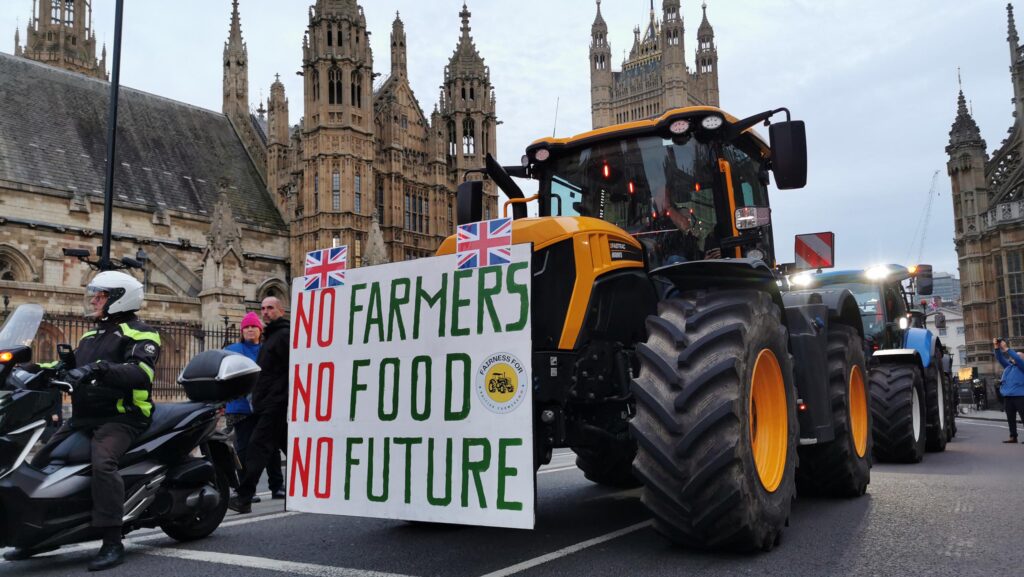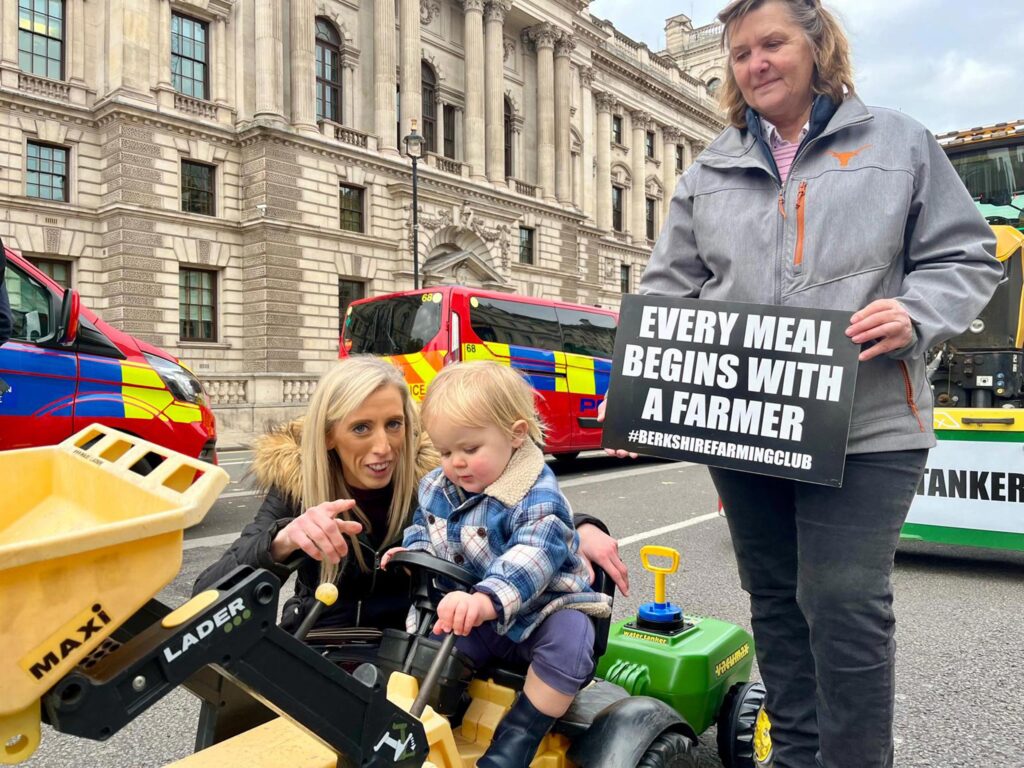Inheritance tax tractor protest in London planned for Budget day
 Farmers have previously held tractor protests in London © MAG/Philip Case
Farmers have previously held tractor protests in London © MAG/Philip Case Farmers from across the UK have finalised plans for another large tractor-led protest in London on Budget day, warning that proposed inheritance tax (IHT) reforms threaten the future of family farms and small rural businesses.
The protest – organised under the banner Farmers to London: Budget Day by the Berkshire Farmers group – will kick off in the early hours of Wednesday (26 November), coinciding with chancellor Rachel Reeves’s autumn Budget announcement later that day.
See also: Farmers unite in nationwide day of protest against IHT
Logistics and travel
Ahead of the action, low-loaders carrying tractors are due to arrive today at Flowervision (TW19 6BN) and Berkyn Manor Farm (SL3 9PE), with overnight parking offered.
Organisers have urged participants to arrive fully road-legal and considerate of public safety.
On the morning of the protest, farmers will gather at Berkyn Manor Farm in Horton, Berkshire, from 4.30am.
Refreshments will be provided before they depart at about 6am to 6.30am for the capital.
The convoy is expected to follow a route from Reading via the A4 and the A40 into central London, arriving in Whitehall at about 9am.
Alternatively, farmers who are travelling directly to Whitehall are being urged not to arrive before 9am as they will not granted access until after this time.
Agenda in Whitehall
Tractors will begin rolling into Whitehall from 9am, entering via A4 Trafalgar Square (what3words: turkey.limit.crab).
Between 10.30am and 11.30am, a speaker session will feature prominent opposition MPs.
This will be followed by a “Starmer’s Farm Live” segment before the chancellor reads the Budget at 12.30pm.
Later in the afternoon, further speeches will be made by farmers and contributors.
This will include Somerset young farmer and Big Brother finalist Cameron Kinch and a prominent shadow MP.
Tractors depart at about 4pm.
Why farmers are protesting
At the heart of the protest is deep concern about the Labour government’s planned reforms to inheritance tax (IHT).
Farmers consider the London protest to be a “last-ditch” effort to persuade the government to rethink the policy.
From April 2026, agricultural and business property relief (APR and BPR) will be capped at £1m.
Anything above that subject to a 20% tax – a move farming organisations including the NFU, Tenant Farmers Association (TFA) Country Land and Business Association (CLA) and others warn will force farming families to fragment or even sell their land just to pay bills.
The campaign has already sparked a flood of political engagement.
More than 12,000 letters have been sent to MPs, as part of the NFU-backed “Stop the Family Farm Tax” initiative.
Caroline Graham, a farmer based in Newbury and Berkshire Farmers group co-ordinator, said: “If Labour’s unjust family farm tax is implemented, it will cause untold devastation to family farms and small and medium-sized businesses.
“We would have to sell off nearly 50% of our farm to pay the tax bill.

DUP agriculture spokesman Carla Lockhart (left), with a future farmer, and Newbury farmer and Berkshire Farmers spokesman Caroline Graham © MAG/Philip Clarke
“Our farms will be taken over by HMRC and central banks, who will be selling your farm with or without your permission to get their money.
“Farmers are normal working people who work day in, day out in all weather conditions.
“We cannot afford to hand the taxman £2,000 a month for a decade.
“It would wipe out generational farming businesses.”
However, the UK government insists the reforms to APR and BPR are “vital to fix the public services we all rely on”.
Peaceful protest
Organisers have emphasised this will be a peaceful, farmer-led protest by the people who feed the nation.
Those taking part are also being asked to respect noise limitations where enforced and to be mindful of public safety, property and marshals’ instructions.
Tractor drivers are being advised that no Ultra Low Emission Zone exemption applies, and they are individually responsible for paying congestion charges.
